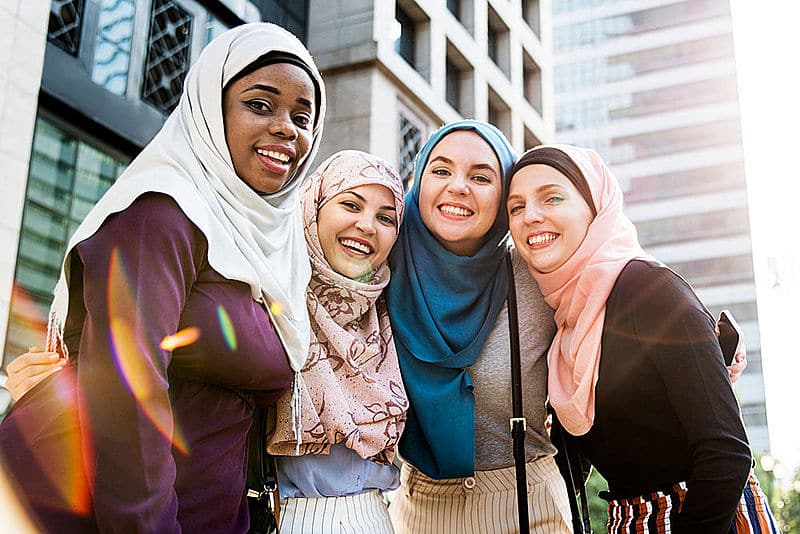Chapter 2: American Muslim Converts

The intersectionality of American Muslims converts, while often underappreciated and misunderstood, should be celebrated as a product of American religious freedoms and the internal diversity of the Islamic community.
In this chapter, I will be focusing on American Muslim converts and their role as pioneers who stand at the intersection of culture, religion, and nationality in the United States. Using the story of my convert mother and the story of America’s earliest Muslim converts as a backdrop, I will attempt to underline some significant issues that American Muslim converts deal with on a daily basis because of their individual and collective choices to practice their first amendment rights in a nation that does not always respect them and a religious community that does not always include them. I believe that my mother, a woman who grew up in Camden, New Jersey and who converted to Islam at the age of 18, is a person who perfectly exemplifies the struggle that American Muslims like her face on account of their intersectionality. As historical counterparts for this chapter, I will be diving into the story of Alexander Russel Webb, one of the first documented American Muslim converts who was white and middle-class, as well as other converts who share similar stories. The focus of this chapter will primarily be the ways in which American Muslim converts either lose or gain privileges (and sometimes rights) depending on where they choose to stand on the spectrum of religiosity and nationality.
For this chapter, I will be relying on the following sources (this remains an evolving list and may be subject to changes):
- A Muslim in Victorian America: The Life of Alexander Russell Webb by Umar Faruq Abd-Allah Wymann-Land
- Struggling to Surrender: Some Impressions of an American Convert to Islam by Jeffery Lang
- The Invisible Muslim: Journeys Through Whiteness and Islam by Medina Tenour Whiteman
- Pew Research Center’s data on the demographics of American Muslim converts
- ISPU’s data on American Muslim converts


